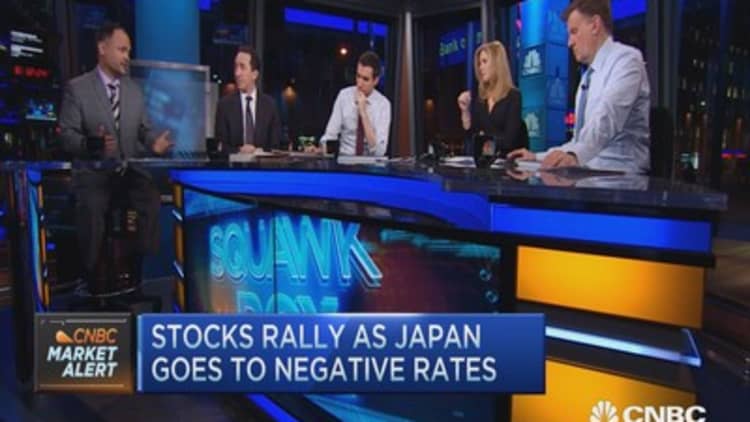
The Japanese central bank has only dug the country deeper into a hole by adopting negative interest rates, Lindsey Group chief market analyst Peter Boockvar said Friday.
"I think it's economic kamikaze," he told CNBC's "Squawk Box." "Let's tax money and hope things get better. Let's create higher inflation for the Japanese people, who are barely seeing wage growth. And let's amp up the currency battles, and hope everything gets better."
The Bank of Japan surprised markets on Friday by pushing interest rates into negative territory for the first time ever. By doing so, the BOJ is essentially charging banks for parking excess funds.
The fact that the vote was split shows that BOJ Governor Haruhiko Kuroda got a lot of pushback to advance the policy, Boockvar said.
"If this means now that they're out of bullets with [quantitative easing], and this is their last hope, then I think this is a mess," he said.
In a statement released along with the rate decision, the BOJ said the Japanese economy has recovered modestly with underlying inflation and spending by companies and households ticking up.
But the bank warned that increasing uncertainty in emerging markets and commodity-exporting countries may delay an improvement in Japanese business confidence and negatively affect the current inflation trend.
The BOJ's inflation target is 2 percent. The BOJ now forecasts core inflation to average 0.2 to 1.2 percent between April 2016 and March 2017.
Boockvar said he believes it's a fallacy that Japan needs inflation to generate growth.
"Inflation readings are a symptom of what underlying growth is," Boockvar said. "For Kuroda to think 'I need to generate higher inflation to generate growth' to me is completely backwards, especially when Japanese wage growth is so anemic. You're basically penalizing the Japanese consumer, and I don't know what economic theory is behind that."
—CNBC's Nyshka Chandran contributed to this report.



